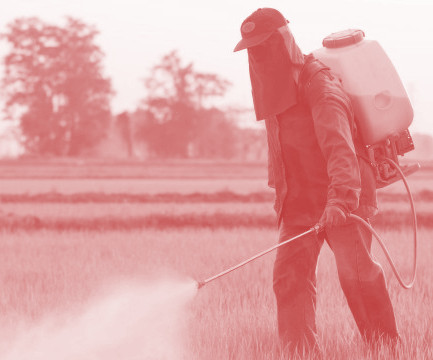Local Roundup cases loom
 A farmer has become the first person in Australia to launch legal action against Monsanto, claiming Roundup caused his cancer.
A farmer has become the first person in Australia to launch legal action against Monsanto, claiming Roundup caused his cancer.
Sixty-seven-year-old New South Wales farmer, Ross Wild, used Roundup on his farm in Moama since it was first introduced in 1976.
Mr Wild was last year diagnosed with non-Hodgkin's lymphoma. He claims long-term exposure to Roundup's active ingredient, glyphosate, caused the condition.
Melbourne-based lawyer Tony Carbone - managing partner of Carbone Lawyers – is representing Mr Wild, and has also lodged another case against the chemical giant on behalf of 54-year-old Melbourne gardener, Michael Ogliarolo.
The lawyer says Monsanto, which is owned by pharmaceutical conglomerate, Bayer, will be served writs for both cases before the end of the week.
Mr Carbone argues that the warnings on Roundup bottles have been inadequate.
“The company has always promoted the product as being safe. In fact, in some instances, it said it was ‘safer than table salt’,” Mr Carbone said.
“The average person, including farmers and gardeners, would think; ‘OK, if it's marketed like that then it can't be unsafe’.
“Mr Wild wants everyone to know the product isn't safe.”
The company was recently ordered to pay a huge compensation bill in the US.
Bayer Australia says the “extensive body of science” on glyphosate-based herbicides supports the conclusion that Roundup does not cause non-Hodgkin's lymphoma.
“We firmly stand behind the safety of glyphosate-based products and, as a company devoted to life sciences, assure Australians that their health and the environment are our top priority,” the company said.
“At the end of the day, whether you're in the court of law, regulatory agencies or court of public opinion, it's the science that should matter here. Bayer stands behind these products and will vigorously defend them.”
The National Farmers' Federation (NFF) says the link between glyphosate and cancer is a “myth”.
“More than 800 scientific studies and reviews, including numerous independent regulatory safety assessments, affirm that glyphosate is safe and does not cause cancer,” the farming lobby said in a media release.
“A recent longitudinal study by the United States' National Institute of Agriculture followed 57,000 farmers and registered applicators of glyphosate for more than 20 years. The study found no connection between cancer and glyphosate.”
Cancer Council Australia acknowledges that the International Agency for Research on Cancer (IARC) has classified glyphosate as a probable carcinogen.
“While some of the evidence has shown mixed results, after reviewing hundreds of studies, the IARC concluded that glyphosate is ‘probably carcinogenic in humans’,” Cancer Council chief Dr Sanchia Aranda says.
“The apparent increased risks were mainly found in agricultural workers, and the main cancer type associated with use was non-Hodgkin’s lymphoma.”
Professor Aranda has called for a systematic review of the data around glyphosate exposure in Australia.







 Print
Print